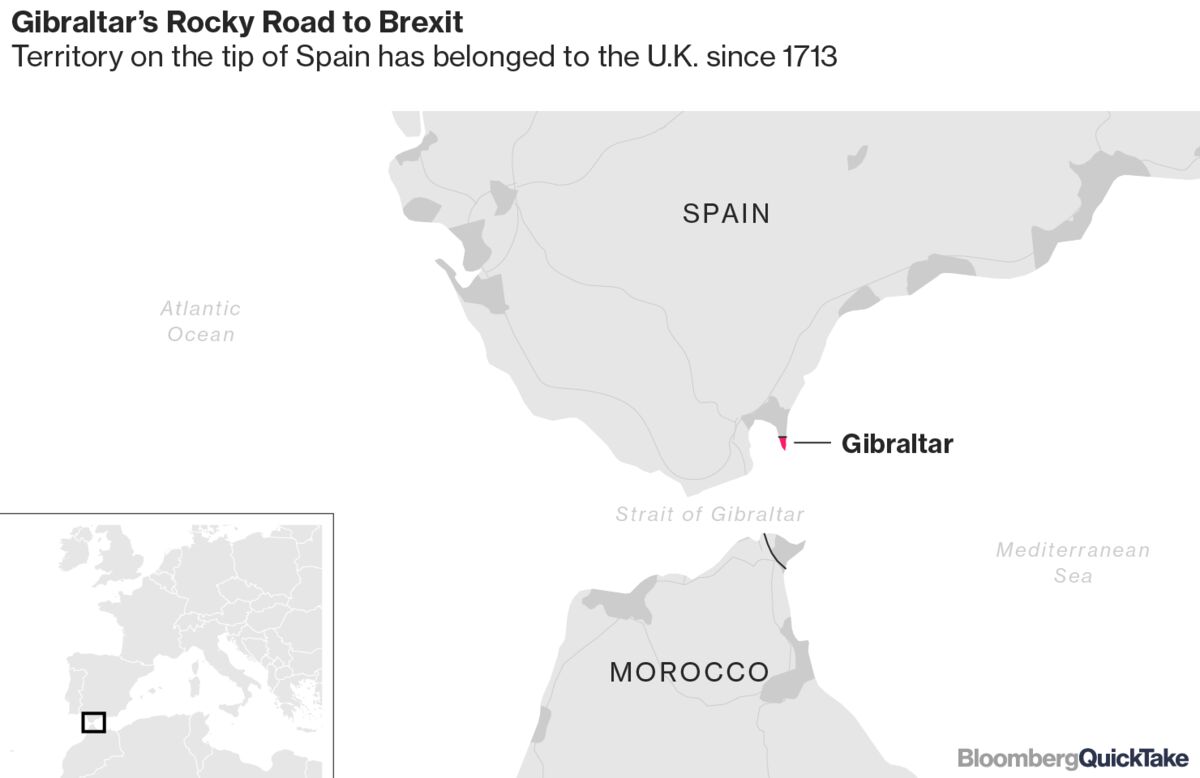
Spain and the United Kingdom signed a last-minute agreement on Gibraltar that facilitates access to the territory and eliminates the threat of new restrictions on the border with the European Union once Britain leaves the bloc on 1 January .
A preliminary agreement was reached that would help build “shared prosperity,” Spanish Foreign Minister Arancha Gonzalez Laya told reporters on Thursday.

Vehicles on the border crossing to Gibraltar from Spain on 30 December.
The territory will operate under Schengen conditions without a passport, he said, adding that the final agreement is expected to enter into force within six months.
“The door rises,” González Laya said. “It allows to suppress the controls between Spain and Gibraltar”.
During a four-year period of implementation of the agreement, officials from the European border agency Frontex will assist with controls at the port and airport of Gibraltar, with Spain as responsible for overseeing Schengen.
The Brexit trade agreement sealed on 24 December did not include an agreement for overseas British territory with a population of around 32,000. Failure to reach an agreement threatened more intense passport controls, which disrupted the flow of goods and the daily movement of thousands of workers.

“We reached an agreement on a political framework to form the basis of a separate treaty between the UK and the EU on Gibraltar,” British Foreign Secretary Dominic Raab said in a statement. “We will now send it to the European Commission to start negotiations on the formal treaty.”
He said the UK “stood firm” in its support for Gibraltar and safeguarded its sovereignty.
Fabian Picardo, the country’s chief minister, said Gibraltarians “should not be absolutely worried” that the deal could pave the way for Spanish Civil Guard police to end up carrying out border checks.
From the archive: a quick look at the existential Brexit challenge of Gibraltar
The agreement marks a new chapter in the sometimes tense relationship between Spain and the United Kingdom over the small strategic enclave at the entrance to the Mediterranean. Many people in the territory, which has been under British control since 1713, vividly remember a 13-year blockade forced by Spanish dictator Francisco Franco that only ended in 1982.
Joint membership in the EU helped eliminate the dispute and allowed the territory to thrive on tourism, financial services and online gaming. The approximately 15,000 people who cross the border every day to work include many Spaniards from a surrounding area with a history of chronic unemployment.
“Almost at the last minute, the negotiation has been successfully completed and the clock has stopped working,” Picardo told a news conference. “It’s a serious policy, it’s about the future of our children, the strength and growth of our nation.”
– With the assistance of Macarena Munoz Montijano
(Eighth paragraph updates with comments from British officials on sovereignty)